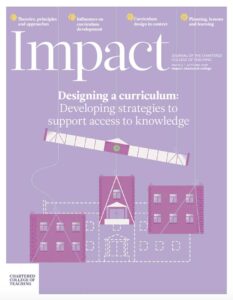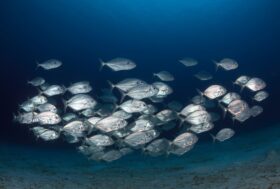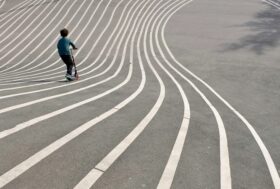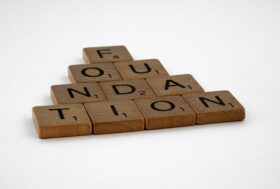Knowledgeable skills or skilful knowledge?

Not all pupils arrive in the music classroom as novices, and some bring expert knowledge of a variety of musical traditions. This has important implications for debates around the place of knowledge and skills in the curriculum. Knowledge and skills are often proposed to exist as opposites, or one is considered to be more important than the other. Nick Gibb, speaking at the launch of the pamphlet ‘A Question of Knowledge’, said that ‘thanks to the work of Tim Oates and others, the new National Curriculum (Department for Education, 2014)put knowledge back at the centre of schooling’ (Gibb, 2017). This return to the predominance of knowledge as the key to educational success is partly a result of the work of cognitive scienceThe study of the human mind, such as the processes of though... More demonstrating that knowledge-based curricula create the best results for students (Parents and Teachers for Excellence , 2016).
The nature of musical learning and musical knowing interfaces between knowledge and skills in a very distinct way. When we use a musical skill, such as singing, we are drawing on knowledge of how to use our voices, which might include knowledge of how to manage our breath control or knowledge of how it feels to sing loudly and how to sing quietly. Musical knowledge is often embodied knowledge rather than factual knowledge, such as knowing the dates of composers’ deaths. Particular knowledge is required to demonstrate musical skills, and, in turn, new knowledge will be created through the use of the skills.
With an emphasis on the importance of knowledge in the curriculum, Finney (Finney, 2018b) observes that music curricula often represent a canonically determined ‘disciplined journey of the learner from novice to expert… Progression in learning is accounted for by progression in curriculum content adhering to the traditions of the subject.’ I agree: we often plan our curriculum so that content becomes progressively more complex as pupils move through the curriculum. However, perceiving the curriculum as a continuum in one direction can be problematic and ignore the musical expertise of pupils.
The music education debate: Are skills and knowledge the same thing?
In the now-with drawn professional development materials for music from OfstedThe Office for Standards in Education, Children’s Services... More (Ofsted, 2012), it was stated that ‘there should be no doubt that you are in a musical lesson. Pupils should be given every opportunity to experience, listen, engage, explore, respond to and work creatively with the language of musical sound’ – no mention of pupils needing to know anything. Martin Fautley notes that the pursuit of a knowledge-rich curriculum often defines ‘knowledge almost entirely as being declarative knowledge, with facts being at the centre of these. Skills… are either downplayed or discredited. But this view of a narrow knowledge-based education system is predicated on constructs which we in music education have no problem reconciling.’ (Fautley, 2018) Fautley explains succinctly that skills in music are complex, as they ‘often also have a physicality, embodiment, or musculoskeletal component, in which feeling the music, its beat at the very basic level, involves more than simple recall. This distinguishes the skill of playing a musical instrument from, say, the skill of long division.’ (Fautley, 2018, p. 1) Prioritising knowledge of music can lead to lessons about music that are not distinctly music (or musical) lessons.
It is also important to remember that, in music, creativity and knowledge are interrelated. Finney (Finney, 2018a) reminds us that ‘music is a human practice rather than a body of knowledge’ and that ‘it is creativity that allows for knowledge to be made’. Finney sees knowledge existing in various guises: ‘There is knowledge as experience, knowledge embodied, practical knowledge and most significantly, knowledge made through imagination and creativity as part of the transaction between teacher and child.’
The question remains whether we need to know something about music to be able to create it. Your beliefs as a teacher are essential in formulating the components of the curriculum and the balance to be achieved between what pupils should know and what they should be able to do. It is important to reflect that, for music educators, the knowing and the doing are likely to be the same thing.
Implications for classrooms
When planning music lessons, teachers can ask themselves what knowledge the pupils could bring to the lessons and the knowledge they need pupils to know by the end of the project. It is important to consider the skills that pupils will need at the start of the project (and how to address these if missing) and what skills they hope to develop (or extend) through the project. Whilst some schools might encourage a knowledge-rich curriculum and expect curriculum planning to evidence the knowledge that will be covered, music teachers should champion the uniqueness of music by listing the skills as knowledge that pupils will gain by studying music.
Notation
Music education has witnessed regular debate about the nature of music notation and its importance in the classroom. Notation can be considered a skill (the ability to read the symbols and interpret their meaning) or knowledge (knowing what the symbols are and knowing what they mean). Fautley highlights this problem well when he writes that (Fautley, 2017):
“It is common parlance to talk of ‘reading’ music, but what may be more apposite is to consider ‘speaking’ it. This is because whilst a learner may be taught to decode letter names and note lengths, recognising a dotted quaver D, followed by a semiquaver D, then a barline, then three crotchets E, D, G, then another barline, then a minim F#, is good and useful as declarative knowledge, but utterly meaningless if the ‘reader’ is asked what song begins like this, and then cannot name Happy Birthday! To do this they have to be able to speak music, not just read it.”
Composition
Any kind of musical creativity requires a balance of both skills and knowledge. Depending on the nature of the activity, pupils might require knowledge of relevant musical conventions. For example, this might include knowledge of scales and how to construct chords. If the pupil is using software, they will require knowledge of where certain features of the software are that allow them to construct a musical argument, and will need to possess the skill to combine musical ideas. Music students, and particularly composers, have highly tuned metacognitive skills, continually monitoring the additions to any project they are working on, and refining as they go. They require the skill of listening to evaluate, but the knowledge of what makes an effective musical idea, phrase or gesture is built up through sustained engagement with music in the classroom and beyond.
Playing an instrument
We immediately consider the act of playing a musical instrument to be a physical skill that requires sustained practice and drilling of the physical movements that enable pupils to make sounds and perform music. A great deal of knowledge is required: primarily, knowledge of how to hold the instrument, knowledge of how to ensure that the mouthpiece (if applicable) is located on the correct part of the mouth, knowledge of how to start a sound, and knowledge of how to stop. It requires a considerable body of knowledge for a pupil to be able to perform on an instrument with ease. Curriculum planning could be mindful of this large amount of knowledge required for seemingly straightforward practical work and consider how to provide sufficient practice for the pupils to gain it. Practical knowledge related to instrumental and vocal skills is developed through doing, and this embodied knowledge should be championed as being worth the time taken to cultivate it over the building of factual knowledge that does not provide pupils with an authentic engagement of music in the classroom.
Music educators do need to reflect on their own beliefs about the curriculum that they wish to offer their students: we want to recognise that we can explain musical skills as musical knowledge, and that creativity can be seen as the creation of knowledge rather than something that is only made possible through extensive knowing. We need to decide what content and products will shape the curriculum, and to what extent we see music as a subject that deals with a human practice or as one that celebrates a canon of ‘great’ music. How far music embraces the practices of the students should be considered, but the fundamental question remains: to what extent will musical skills and musical knowledge be balanced in a curriculum? If we are to retain music as a discrete curriculum subject, we need to find the balance.










